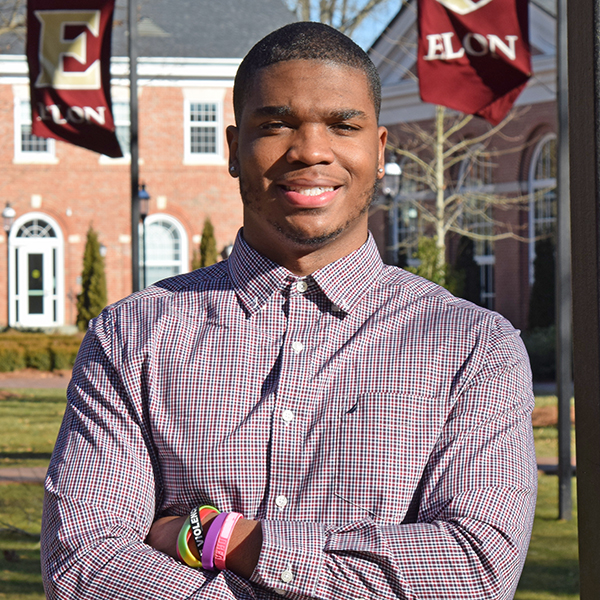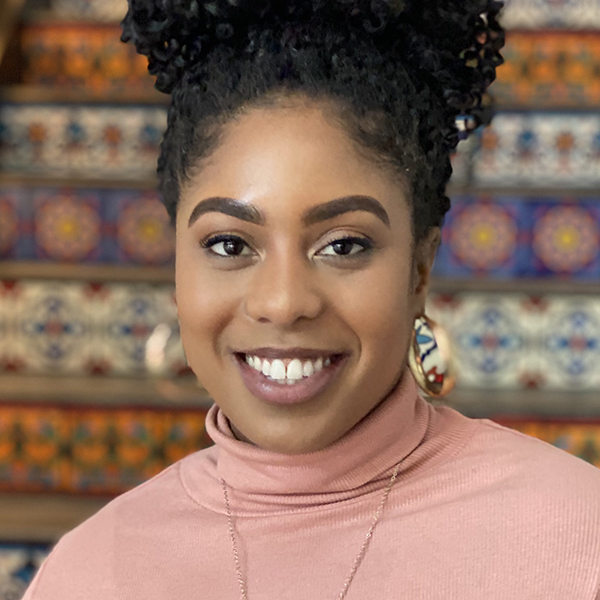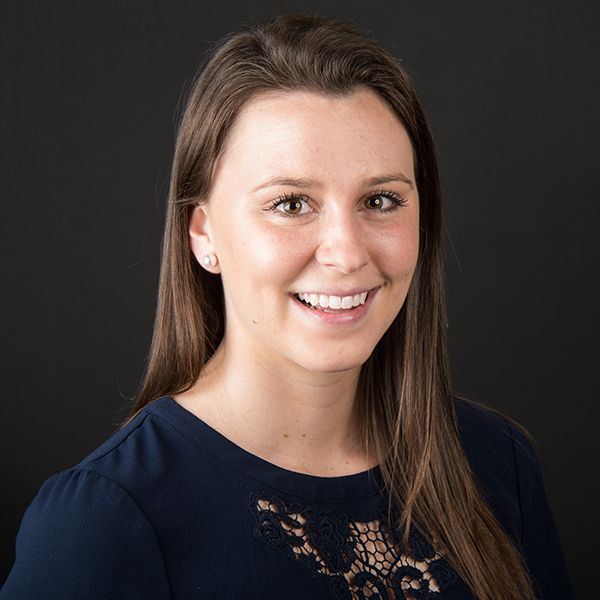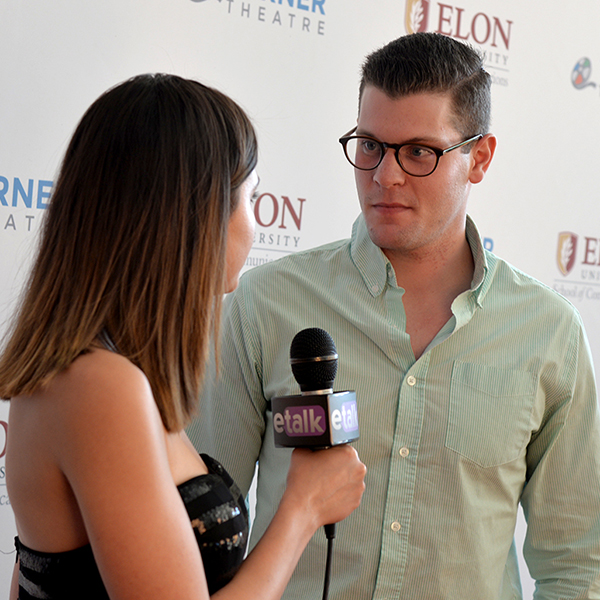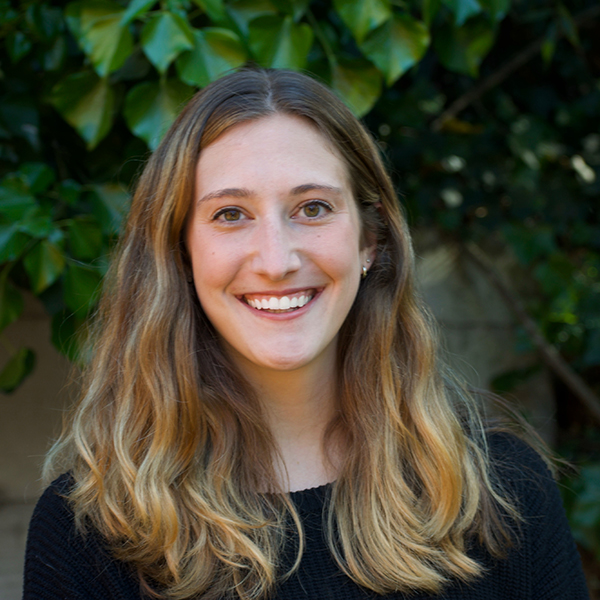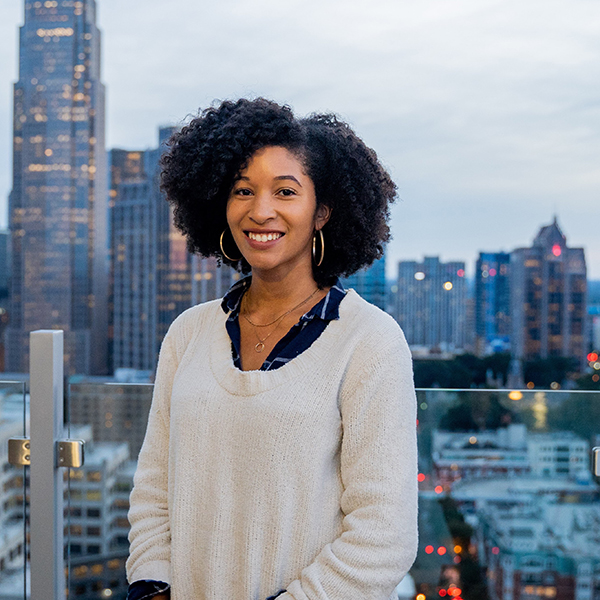- Home
- Academics
- Communications
- About the School
- Turning 21 Celebration
- Turning 21 – Maggie Brown ’15
Turning 21 – Maggie Brown ’15

‘There were people that wanted me to succeed, which was really valuable to me’
It’s not ordinary to know your career path at a young age. But then again, Maggie Brown ’20 is anything but ordinary. She always knew she wanted to write and was captivated by the “daring and adventurous” nature of journalism, as she puts it. She decided at the age of 17 that she liked the sound of “journalist” and set her mind to learn everything she could about becoming one. But it took coming to Elon to realize that writing was more than just a captivating profession – it was one she was meant for.
The Communications Fellow jumped head first into Elon News Network, the university’s student-run news organization, and began writing the first day on the job. When the associate editor position came open, she seized it, and when the idea of a politics editor came into existence, she brought it to life. For Brown, the ladder in ENN was endless, and all she wanted to do was continue to climb. “I wanted my writing to be critiqued, and I wanted to be challenged,” Brown said.
There was just something about developing a story idea, finding sources, gathering information, and finding the smallest of leads that made Brown’s heart sing.
“It felt like hunting for gold,” Brown said of reporting. “Every so often there was a piece of gold that I got to fit into my story. I still love doing it today.”
Throughout her time in ENN, Brown’s work focused on societal concerns and issues of great importance to populations that, sometimes, are underrepresented in typical news coverage. This included communities both on and off campus. Put simply, she not only loved the hard work of piecing together stories that would be meaningful to an audience, but she also felt compelled to do so.

After graduating a semester early, Brown landed a position as a multiplatform producer at WRAL, where she completed an internship as an undergraduate.
“My favorite stories I worked on while on campus were about immigration,” Brown said, specifically citing the ICE raids in Alamance County. “I really felt like the work I was doing was important, and the community was not being reported on. The local newspaper wasn’t writing about this horrible injustice that happened to the immigrant community, and I felt like it was my duty to cover it.”
Despite how seemingly effortless and manageable Brown’s undergraduate success may seem, the reality was quite the opposite. Her mother’s sudden diagnosis of pancreatitis during Brown’s first year threw her family into a whirlwind. Tuition became more unaffordable, homework was done in hospital waiting rooms, and most of Brown’s time was spent driving back and forth to Duke University Hospital instead of in the newsroom. Yet, despite it all, she persisted – and never once let her dedication to her career fall by the wayside.
It was that same drive, commitment and undeniable aptness for storytelling that made Brown so deserving of support – both financial and affirmational – from the School of Communications, especially during trying times.
“Financial uncertainty was constantly still hanging over my head and the source of daily anxiety,” Brown said. “I can’t say that the School of Communications helped me entirely … but my bills were more manageable and the support meant a lot when it came in. [It] sent a message to me from the school: ‘We believe in you and we want you to succeed.’ That was really empowering and important to me when times were tough.”
For journalism instructor Colin Donohue, who worked closely with Brown, the opportunity to support her was a no-brainer. In fact, it’s students like Brown who make giving that support so uncomplicated, he explained.

Brown with her family.
“She was incredibly talented from the start and she didn’t just sort of rest on those talents,” Donohue said. “It’s that kind of passion and interest in a particular field that we look for when we’re considering financially supporting students. Certainly, we want there to be a need there, and there should be, but we also want to know that these students are committed to the work they’re doing.”
To no surprise, Brown’s tenacious work ethic earned her an early graduation, and she completed internships with CNN Newsource, the Greensboro News & Record and WRAL in Raleigh, where Brown works today as a multiplatform producer.
While Brown said she wasn’t dealt the hand she would have preferred, she succeeded nonetheless. Her knack for storytelling and uncovering important issues was unmatched, and her dedication to reporting for the public’s good came naturally. But there’s one other thing Brown claims is a driving force in her career: the constant empowerment of School of Communications faculty who made all those bumps in the road more bearable.
“There were people that wanted me to succeed, which was really valuable to me,” Brown added. “I think it would be too narrow to say there was one course or one faculty member that helped me flourish. Elon set me up for success by encouraging me and showing me what I could do.”
– Written by Julia Oakes ’22
Turning 21 Navigation
Other ‘In Their Words’ Profiles
We want to hear from you!
Let us know how a faculty member, staff member or program in the School of Communications supported you as a student and alum. Complete this form.
